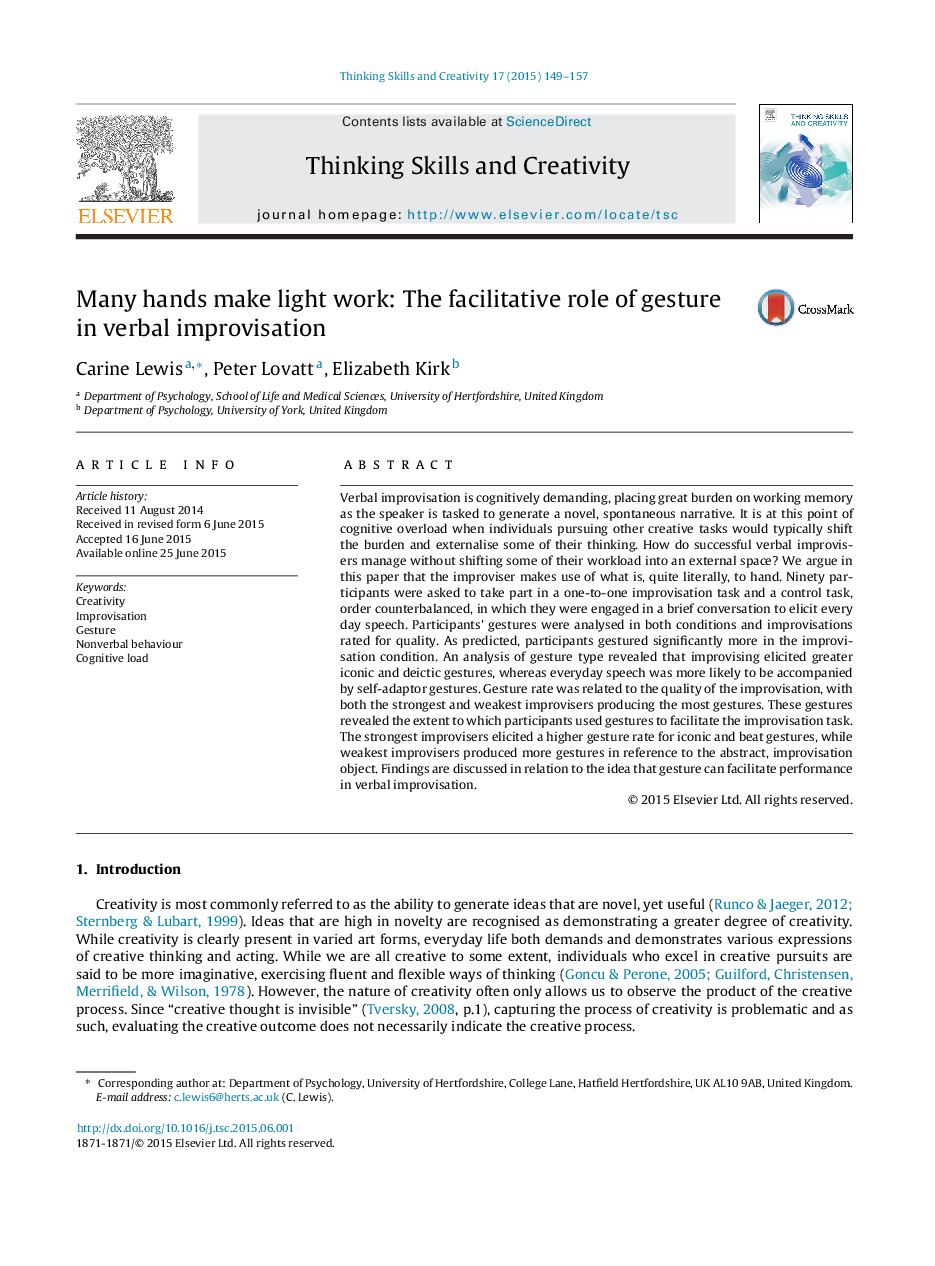| کد مقاله | کد نشریه | سال انتشار | مقاله انگلیسی | نسخه تمام متن |
|---|---|---|---|---|
| 6852005 | 622808 | 2015 | 9 صفحه PDF | دانلود رایگان |
عنوان انگلیسی مقاله ISI
Many hands make light work: The facilitative role of gesture in verbal improvisation
ترجمه فارسی عنوان
بسیاری از دست ها کار سبک را انجام می دهند: نقش مهمی از حرکات در بداهه نوازی کلامی
دانلود مقاله + سفارش ترجمه
دانلود مقاله ISI انگلیسی
رایگان برای ایرانیان
کلمات کلیدی
خلاقیت، ابتکار، ژست، رفتار غیر کلامی، بار شناختی
موضوعات مرتبط
علوم انسانی و اجتماعی
روانشناسی
روانشناسی رشد و آموزشی
چکیده انگلیسی
Verbal improvisation is cognitively demanding, placing great burden on working memory as the speaker is tasked to generate a novel, spontaneous narrative. It is at this point of cognitive overload when individuals pursuing other creative tasks would typically shift the burden and externalise some of their thinking. How do successful verbal improvisers manage without shifting some of their workload into an external space? We argue in this paper that the improviser makes use of what is, quite literally, to hand. Ninety participants were asked to take part in a one-to-one improvisation task and a control task, order counterbalanced, in which they were engaged in a brief conversation to elicit every day speech. Participants' gestures were analysed in both conditions and improvisations rated for quality. As predicted, participants gestured significantly more in the improvisation condition. An analysis of gesture type revealed that improvising elicited greater iconic and deictic gestures, whereas everyday speech was more likely to be accompanied by self-adaptor gestures. Gesture rate was related to the quality of the improvisation, with both the strongest and weakest improvisers producing the most gestures. These gestures revealed the extent to which participants used gestures to facilitate the improvisation task. The strongest improvisers elicited a higher gesture rate for iconic and beat gestures, while weakest improvisers produced more gestures in reference to the abstract, improvisation object. Findings are discussed in relation to the idea that gesture can facilitate performance in verbal improvisation.
ناشر
Database: Elsevier - ScienceDirect (ساینس دایرکت)
Journal: Thinking Skills and Creativity - Volume 17, September 2015, Pages 149-157
Journal: Thinking Skills and Creativity - Volume 17, September 2015, Pages 149-157
نویسندگان
Carine Lewis, Peter Lovatt, Elizabeth Kirk,
